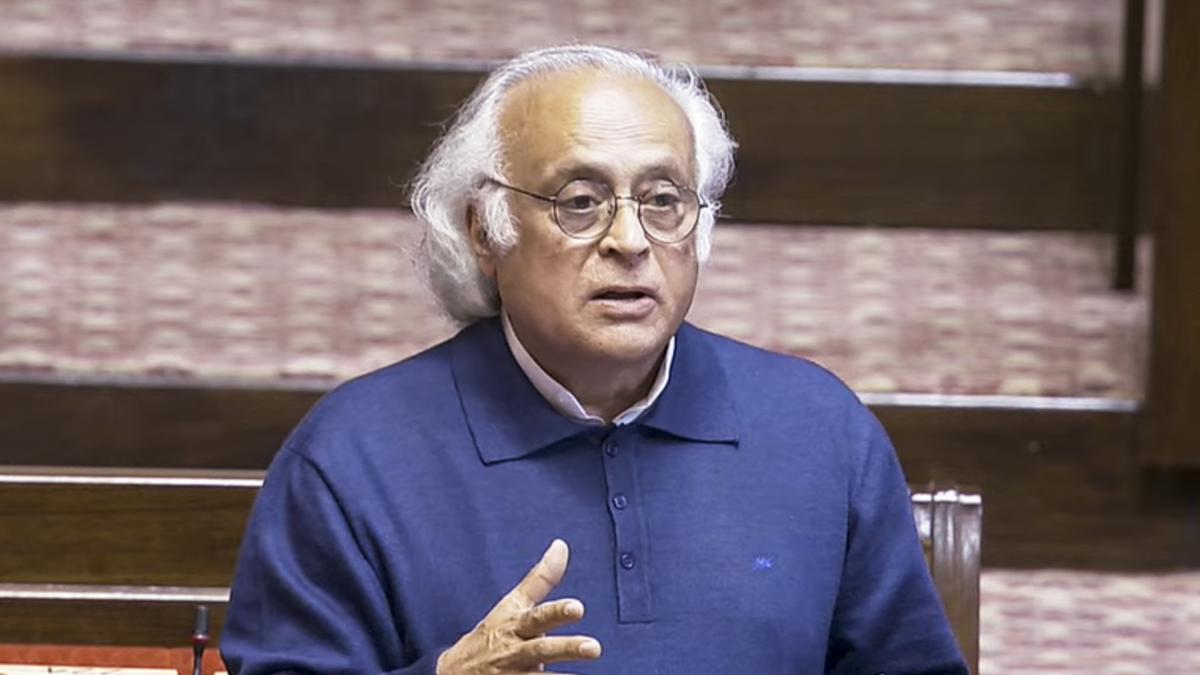Congress MP Jairam Ramesh speaks in the Rajya Sabha during the Budget session of Parliament, in New Delhi. Photo: Sansad TV via PTI Photo
The Congress on Monday (March 31, 2025) demanded that the government bring in a legislation for SC, ST and OBC quota in private, non-minority educational institutions in the country.
In a statement, Congress general secretary, communications, Jairam Ramesh noted that the Parliamentary Standing Committee on Education, Women, Children, Youth, and Sports had recommended a new legislation to implement Article 15(5).
Article 15(5) allows the state to make special provisions by law for the advancement of socially and educationally backward classes, Scheduled Castes, and Scheduled Tribes, including reservation in educational institutions, both public and private, except for minority educational institutions.
Mr. Ramesh said the Congress had during the last Lok Sabha polls committed itself to bringing legislation to implement Article 15(5) of the Constitution in private educational institutions.
“In its 364th Report on the Demand for Grants for the Department of Higher Education, the Parliamentary Standing Committee on Education, Women, Children, Youth, and Sports also recommended a new legislation to implement Article 15(5) as well. The Indian National Congress reiterates this demand,” Mr. Ramesh said.
The Constitution (Ninety-third Amendment) Act, 2005 took effect from January 20, 2006 and this amendment introduced Article 15(5) in the Constitution.
“Nothing in this article or sub-clause (g) of clause (1) of Article 19 shall prevent any special provision, by law, for the advancement of any socially and educationally backward classes of citizens or for the Scheduled Castes or the Scheduled Tribes insofar as such special provisions relate to their admission to educational institutions, including private educational institutions, whether aided or unaided by the State, other than the minority educational institutions referred to in clause (1) of Article 30,” it reads.
Explaining the chronology of legislation to implement Article 15 (5), Mr. Ramesh said the Central Educational Institutions (Reservations in Admission) Act, 2006 was passed in Parliament and reservations for scheduled castes, scheduled tribes and socially and educationally backward classes of citizens in central educational institutions introduced with effect from January 3, 2007.
Citing the case of Ashoka Kumar Thakur versus Union of India on April 10, 2008, he said by a 2-0 margin Article 15(5) is held Constitutionally valid only for state-run and state-aided institutions and reservations in private unaided institutions left open to be decided in the appropriate course.
In the IMA versus Union of India May 12, 2011, he said, by 2-0 margin, Article 15 (5) is upheld for private unaided non-minority educational institutions.
Citing another case, Mr., Ramesh said, “Pramati Educational and Cultural Trust versus Union of India Jan 29, 2014. By 5-0 margin Article 15(5) is, for the first time, upheld as it is explicitly.
“This means reservations for scheduled castes, scheduled tribes and socially and educationally backward classes of citizens in private educational institutions is also constitutionally permissible,” he added.
Published – March 31, 2025 12:55 pm IST
